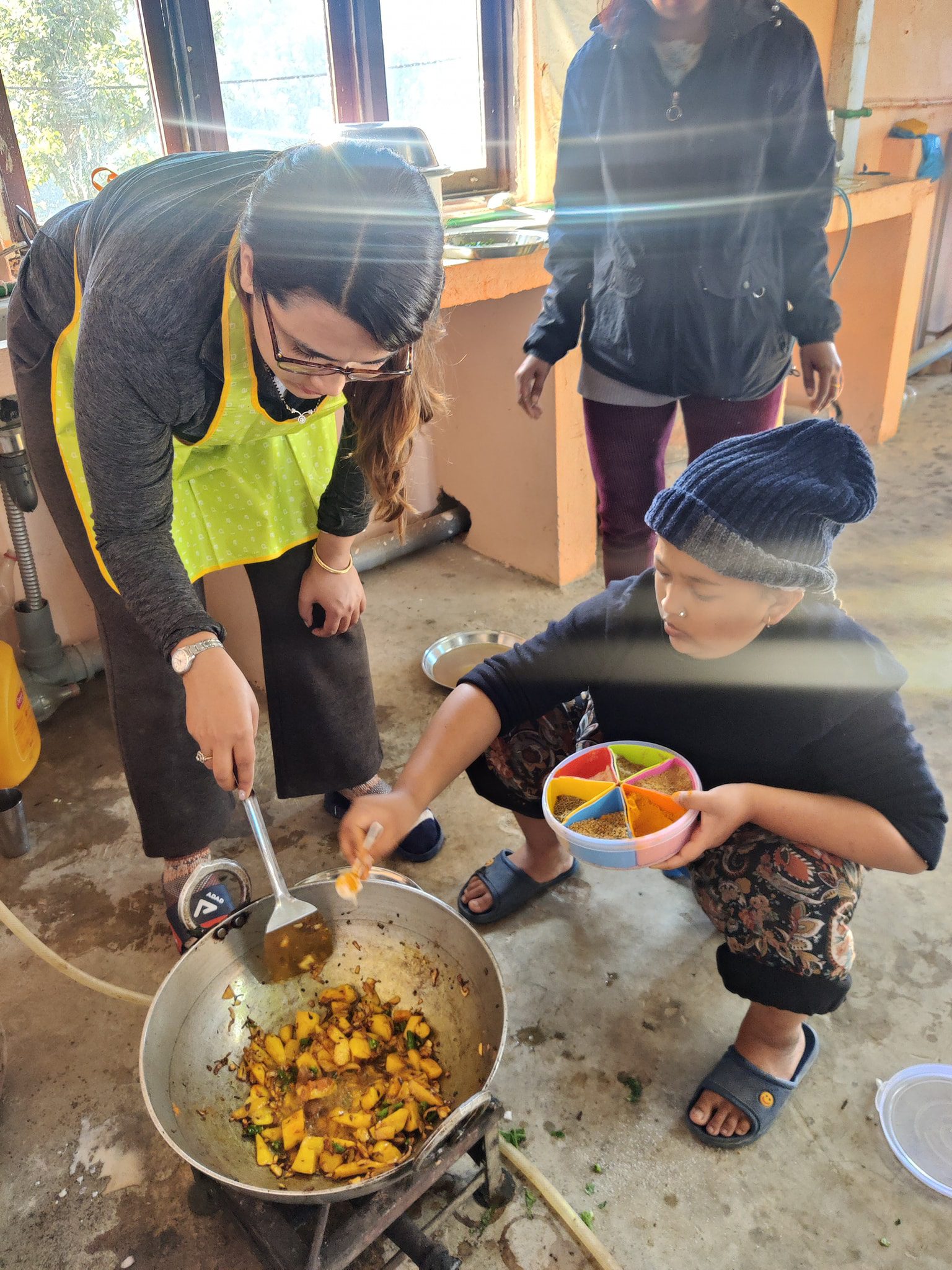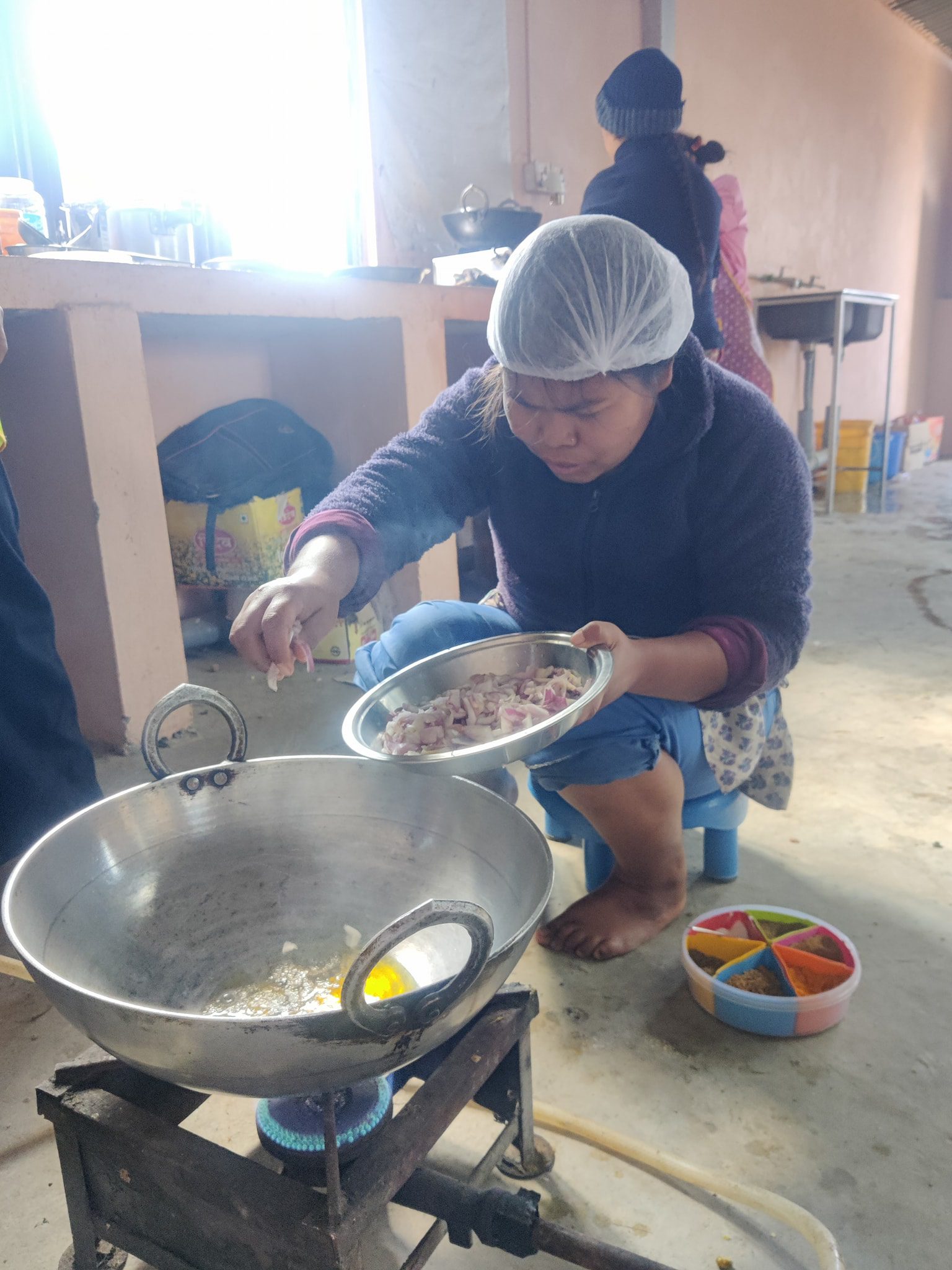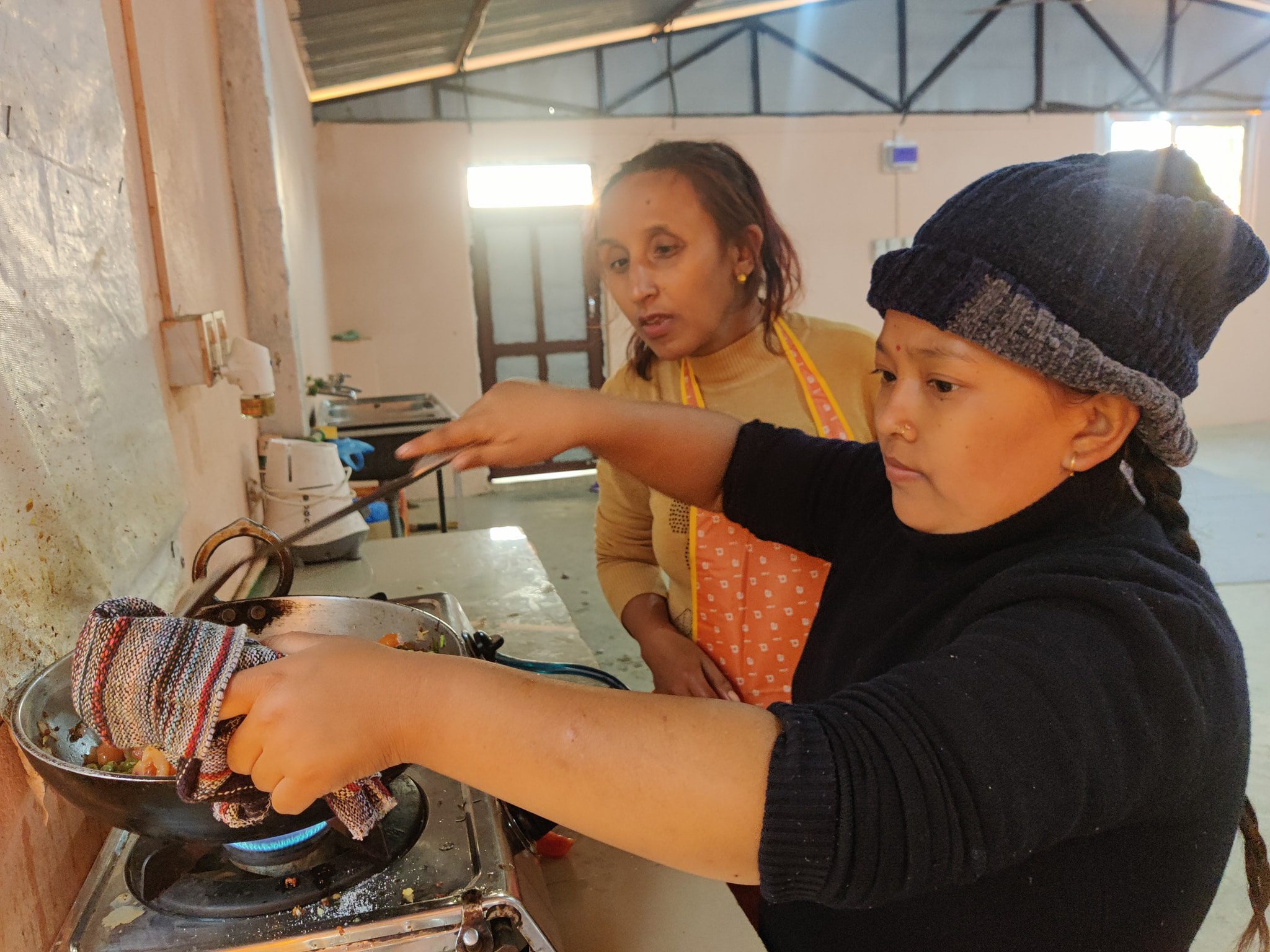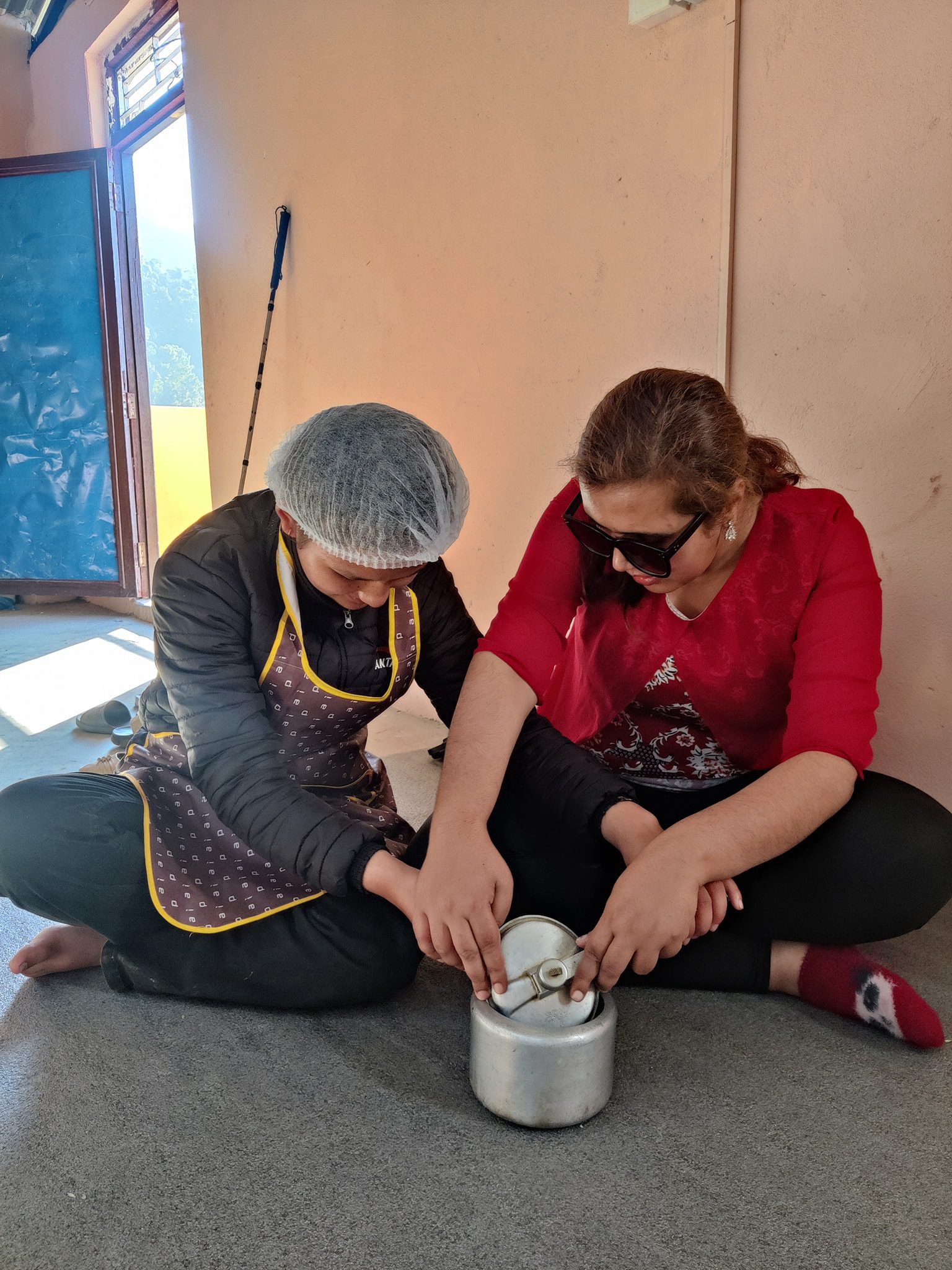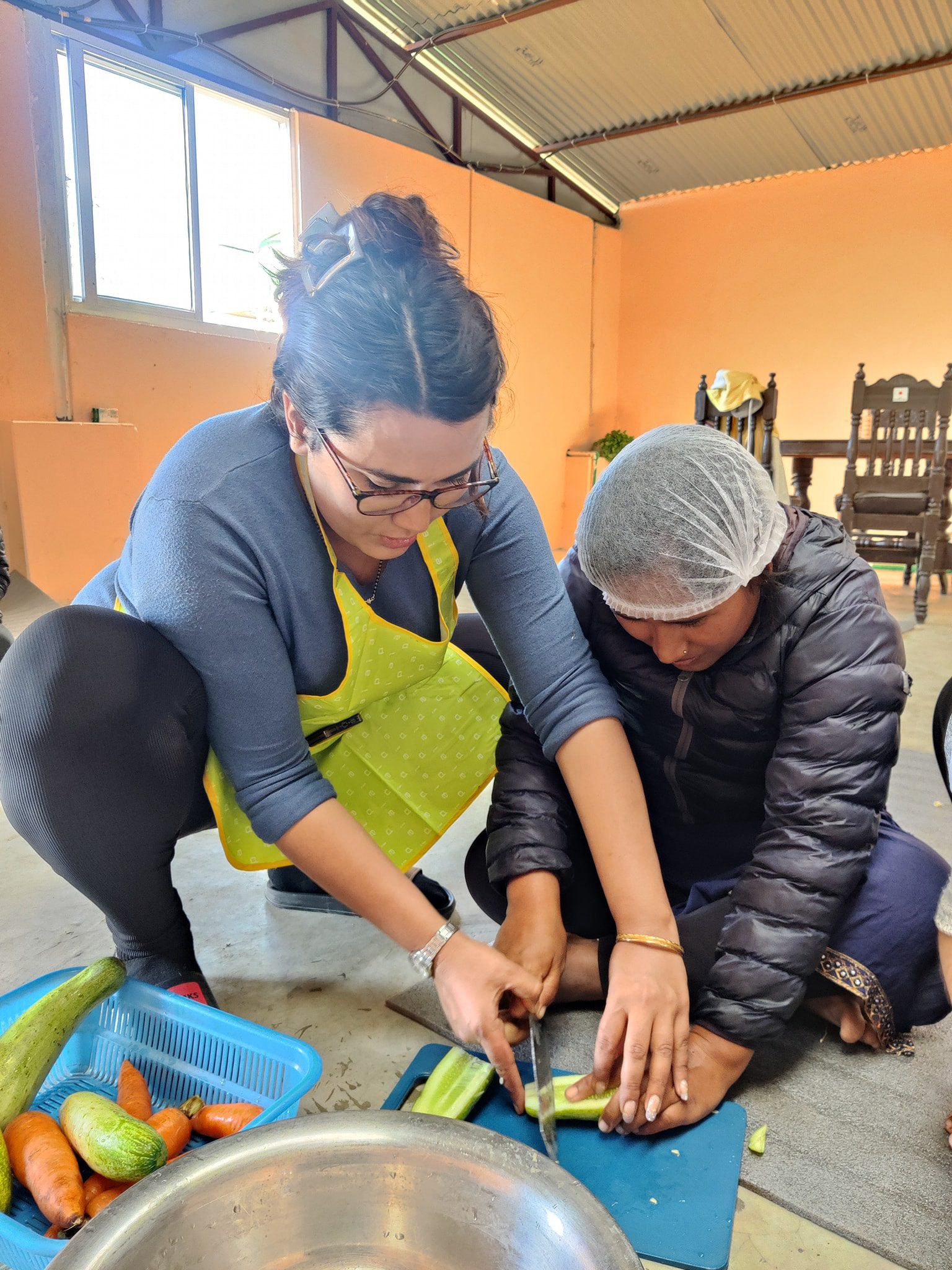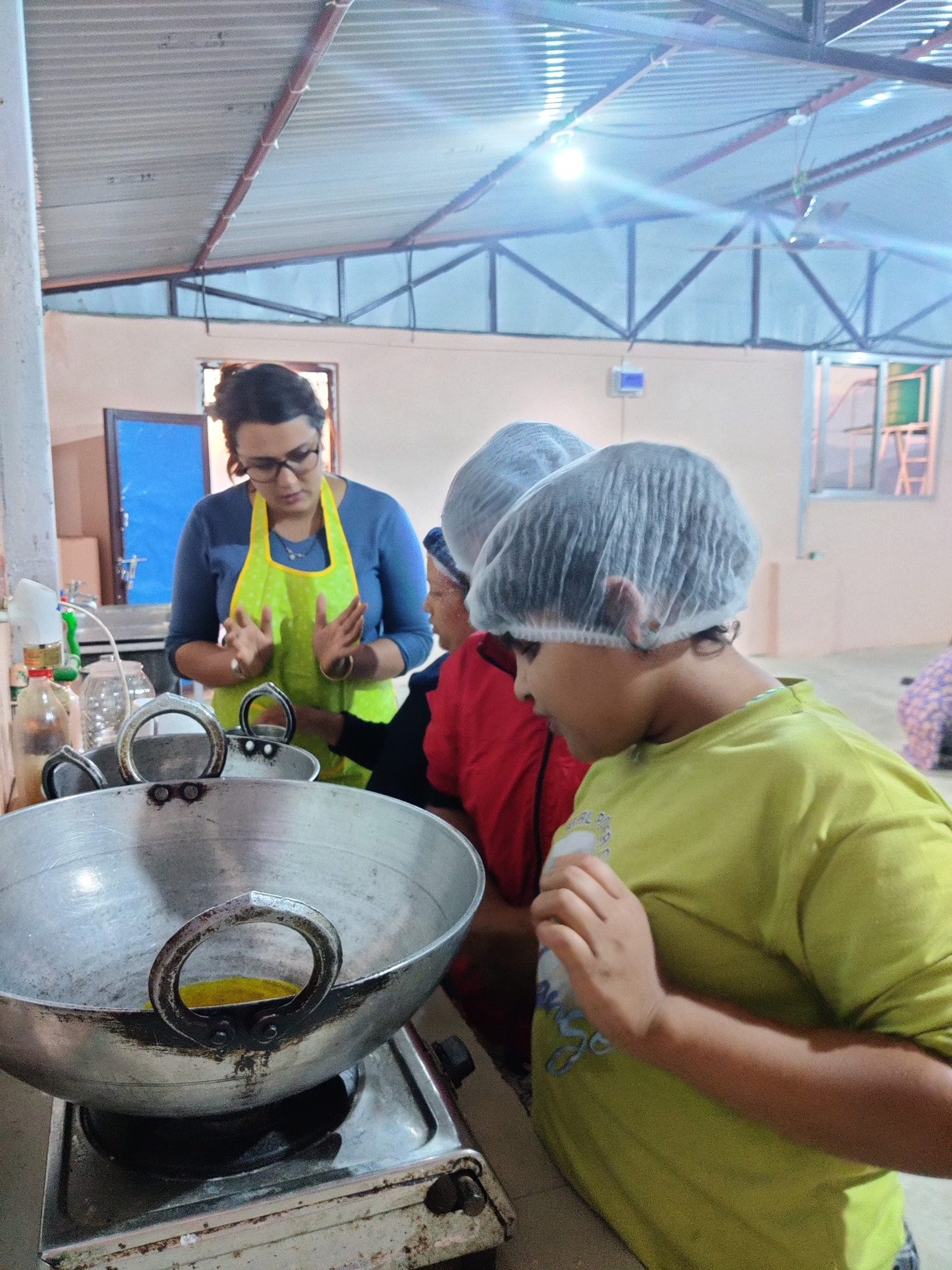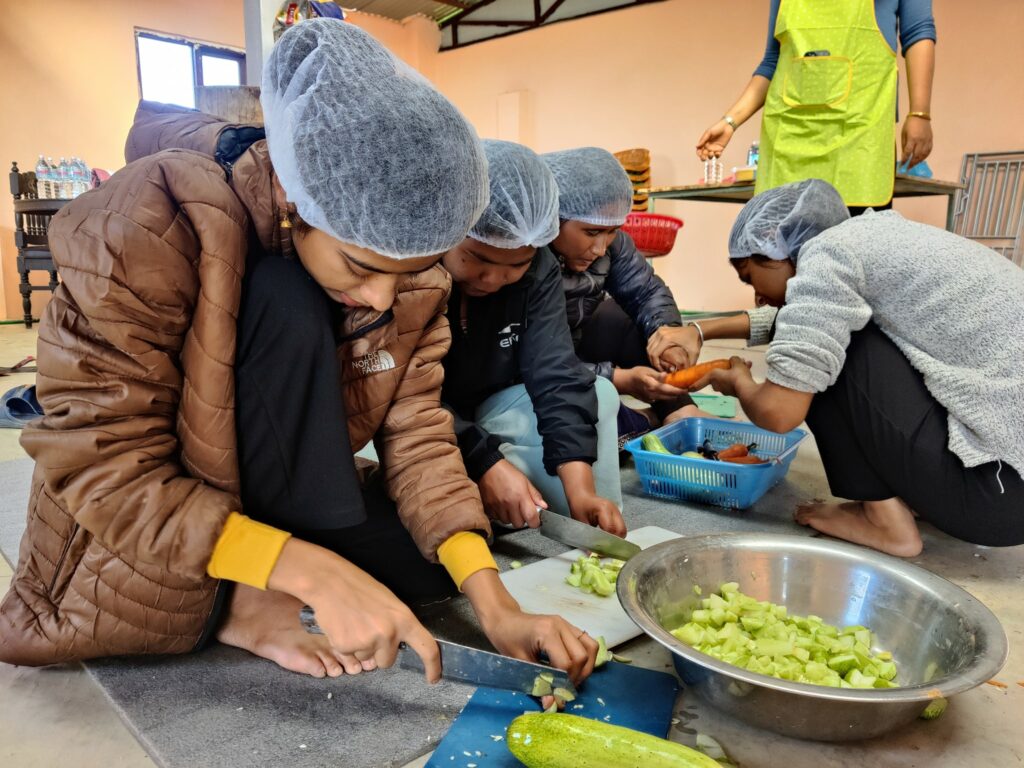
Prayatna Nepal is a self-help organization working for life skills training for women and girls with visual impairments. The organization is established by the composition of both women with and without visual impairments. Among the seven board members, five of them (71%) have visual impairments, and the organization is led by a totally blind woman as the chairperson. This idea of inclusion in the organizational structure is to ensure equal efforts from every individual with a better understanding of improving the social, cultural, economic, and political aspects of lives of women with disabilities.
With the aim of ensuring independence among visually impaired girls and women, Prayatna Nepal organized five-day daily life skills training to enable them to prepare and cook meals, clean rooms, iron clothes, and so on. Ms. Sabita Lamichhane, Secretary of Prayatna Nepal, was the main facilitator of the training, and Ms. Gita Maya Shrestha, Chairperson of Gorkha Association of the Blind was the assistant facilitator. Ms. Sarita Lamichhane, Chairperson of Prayatna Nepal, coordinated the training for five days and facilitated the opening session by welcoming all the participants and highlighting the objectives of the training. She asked all the participants to introduce themselves and then handed the floor to the main facilitator. Ms. Sabita Lamichhane explained the training module. Ms. Gita Maya Shrestha also encouraged all the participants to utilize the five days’ time as much as possible for effective and fruitful learning. The training began with participants learning to wash, peel, and cut vegetables. Among all participants, some did not have any experience of kitchen chores, so they were assisted accordingly. Some were divided into groups to learn their way around using gas stoves, pressure cookers and ironing clothes. For this, the facilitators as well as all the representatives of Prayatna Nepal assisted the participants individually. The participants were divided into groups of two or three to ensure better and effective learning. As it was residential training, the participants were involved in preparing meals from breakfast to dinner. In the 5 days training, everyone got a chance to be involved in all kinds of kitchen and household chores. Overall, the participants learned to prepare tea for breakfast, typical Nepali style Dal-bhat-tarkari-achar for lunch and dinner, suji haluwa (sweet Indian-Nepali dessert made by toasting semolina in ghee and adding sugar and water), chatpate (Nepali spicy/tangy snack) for mid-day snacks or meals. Similarly, they also learned to clean and mop kitchen and dining rooms and spaces and wash dishes. Besides this, Ms. Sabita took feedback from each participant to see if they wanted to learn anything that could be included in the training. Hence, preparing omelets was also included as per their requests. The requests from participants were addressed as much as possible since it was residential training, and the participants had more time to learn with guidance from the facilitators. However, we tried to focus the training on learning to cook the basic meals required for daily survival.
On the second day of the training, Mr. Bijaya Upadhaya (Chief Administrative Officer of Gorkha Municipality) came to observe and monitor the effectiveness of the training. He observed the participants’ involvement and their progress throughout the day. He also gave feedback and appreciated Prayatna Nepal’s effort on behalf of Gorkha Municipality. Media personnel from Choice FM of Gorkha were also present during the closing session of the training, who observed and captured the event and interviewed a few participants and Ms. Sarita regarding the training and its effectiveness. On the last day of training, Ms. Sarita Lamichhane facilitated the closing by taking feedback from each participant. On the closing session, the participants expressed their gratitude towards the Prayatna Nepal team and suggested providing further refresher training. At the end of the training, the participants were able to carry out most household chores independently with confidence.
